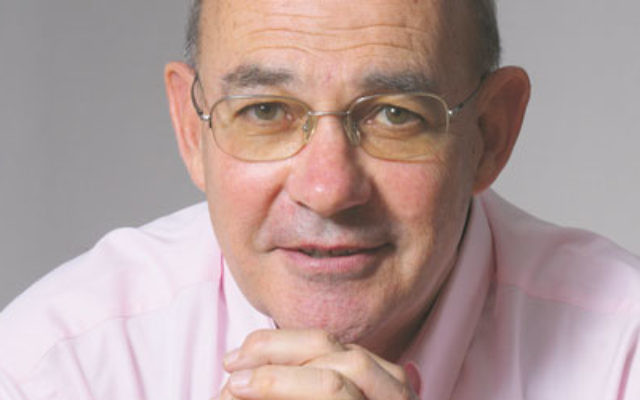Author’s literary dilemma
WHEN Israeli historian and author Tom Segev was asked to write a biography of legendary Nazi hunter Simon Wiesenthal soon after his death in 2005, he thought long and hard about accepting the publisher’s commission.
“One of my conditions was that if my research proved that Wiesenthal was a fraud, then I did not want to be the one who destroyed that myth,” he explains by phone from Israel on the eve of his trip to Australia for a lecture series in Melbourne, and to attend the Sydney Jewish Writers Festival.
For decades Wiesenthal operated the Jewish Documentation Centre from his apartment office in Vienna, where he oversaw the worldwide efforts to apprehend Nazi war criminals, including Gestapo chief Adolf Eichmann, who had supervised the implementation of the Final Solution, and Franz Murer, the “Butcher of Wilno [Vilnius]”.
The enormous quantity of papers and material that Wiesenthal had amassed in his apartment was made available to Segev for his research.
“I was given a key and told that whatever was in the apartment I could use,” he explains.
“I spent several months in Vienna going to his apartment every day and that’s where much of the book came from. No one, apart from [Wiesenthal] himself, had ever seen some of those private papers.”
Segev worked for five years on the book – two-and-a-half years on the research – and Simon Wiesenthal: The Life and Legends was published in 2010. It has since been published in 12 languages.
Segev shows his admiration for Wiesenthal in the biography, but some aspects of his life story troubled him.
“Much of what he wrote and talked about himself was not accurate,” says Segev. “He was not really lying, but rather dramatising or exaggerating things.
“Many Holocaust survivors and people who suffer from trauma do this sort of thing. In the book I tried to work out why he needed to do it.”
Segev is currently researching his latest book, a biography of David Ben-Gurion, Israel’s first prime minister.
“This is a big project, but all my books are big projects and usually take five years to complete,” he says.
“The Economist described my book 1967: Israel, the War and the Year that Transformed the Middle East as a ‘door blocker’, which I actually took as a compliment, because my books are very long.
“I enjoy the writing more than the research. When I find great material in an archive I have the urge to tell the story and get immersed in my subject.”
Segev was born in Jerusalem in 1945. He studied history and political science at the Hebrew University of Jerusalem and embarked on a career as a journalist.
During the 1970s, he served as a foreign correspondent for Maariv and later worked on Haaretz – he still writes a regular column for the paper.
In 1984 he turned to writing books, and his works include Soldiers of Evil: The Commandants of Nazi Concentration Camps; 1949: The First Israelis; The Seventh Million: The Israelis and the Holocaust; Elvis in Jerusalem: Post-Zionism and the Americanization of Israel; and One Palestine, Complete: Jews and Arabs Under the British Mandate.
Segev lectures around the world and will be in Melbourne next week as a visiting scholar for the Australian Centre for Jewish Civilisation (ACJC) at Monash University.
He will present a series of four weekly public lectures titled “The Making of Israel: History, Myth, Memory”.
“The first lecture is called ‘The Twice Promised Land’ and looks at the British mandate of Palestine,” he says.
The other lectures are titled “The first Israelis: How to Speak Hebrew in 100 Languages”; “The Seventh Million: The Israelis and the Holocaust”; and “Elvis in Jerusalem: Beyond Netanyahu and Obama”.
Asked if he would try to predict the future in Israeli politics, Segev says he is not very good at looking into a crystal ball.
“If you had asked me 40 years ago whether we would have peace in the Middle East by now, I would have said, ‘Of course’, so I am better at looking at the past.”
During his time in Melbourne, he will also deliver lectures to ACJC students about the Arab-Israeli conflict.
At the Sydney Jewish Writers’ Festival, he will take part in two sessions. The first session is with fellow Jerusalem residents Irris Makler and Dr Dan Porat titled “Israeli History, Ideology and Politics”.
“I want to give the audience a feel for how Israelis have different views on these topics,” he says. “I hope people will ask lots of questions.”
His second session will be a discussion with prominent Melbourne author and refugee activist Arnold Zable.
“The best article I did in Haaretz many years ago was called “The Fig Tree” – the title of Zable’s 2004 book – about a journey I took with a boy from Ethiopia to look for the grave of his father.
“It was quite an adventure and the boy recognised the place where he had once lived by a fig tree. Eventually this boy become my adopted son and today I am a happy grandfather.”
Tom Segev will deliver public lectures organised by the Australian Centre for Jewish Civilisation at 7.30pm on August 22 and 29, September 5 and 12 at the Monash Caulfield campus. Free entry, limited seating. Enquiries: www.arts.monash.edu.au/jewish-civilisation.
He will also be a guest at the Sydney Jewish Writers Festival from August 25-28. Enquiries: www.sjwf.org.au.
REPORT by Danny Gocs
PHOTO of author Tom Segev by Dan Porges


comments